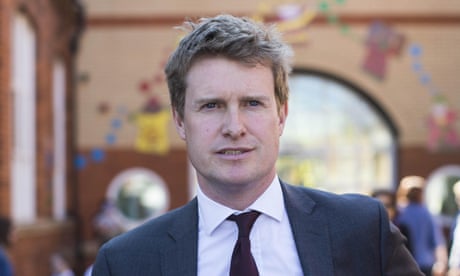The rest of the world has more sensible healthcare funding – so the medical brain drain will get worse
Allister Heath in The Telegraph
Hospital doctors are right: they are not paid enough. This is one of the few issues on which I agree with Jeremy Corbyn and his socialist comrades. But the doctors are wrong to blame the Tories and must resist the urge to back a strike, a cruel and selfish act that would hurt our society’s most vulnerable in the run-up to Christmas.
What the Left and some of the younger doctors, sadly, do not grasp is that the problem is the National Health Service itself: it is broken beyond repair, short of cash and talent, an obsolete monopoly that works neither for its consumers (as yet another OECD report has confirmed) nor for its staff. It is unable to provide us with the level of personalised, responsive care we increasingly require and expect, and it is incapable of paying its staff enough.
The crisis is structural and inevitable with a “free” service. There is too much demand and too little supply; and no mechanism other than rationing, queuing, reduced quality and artifical cost suppression to reconcile the two. The UK’s hospital doctors have fallen victim of the latter force: they earn far less than the global rate, an unsustainable situation in an increasingly international medical marketplace.
Specialists in the UK make just over half what they do in America, and less than their counterparts in Australia, Canada, France and Germany, according to the seminal study on the subject by David M Cutler and Dan P Ly of Harvard University, published in the Journal of Economic Perspectives. The two academics conclude that “the one major country that appears to be paying its physicians too little is the United Kingdom”, a remarkable statement given the thoroughness of their research. One consequence of Britain’s excessively low medical wages, they argue, is that the UK is losing much of its homegrown talent and has had to import 28 per cent of its doctors from abroad to compensate.
 Adams cartoon, 5 November
Adams cartoon, 5 NovemberOther research backs this up. The most up to date figures from the OECD show that specialist doctors in the Netherlands, Ireland, Denmark, Luxembourg, Israel, Finland and even Turkey earn more than their British counterparts, once adjusting for the purchasing power of their wages. As to junior doctors, Canadian starting salaries are between 14 per cent (in Quebec) and 49 per cent (in Alberta) higher than those in the UK when adjusted in the same way. It costs much less to live in (say) Texas that it does anywhere in the UK, so even in those cases when cash salaries don’t look that much higher abroad they often generate a much better quality of life.
The Left, as ever, is gunning for the Tories. That is silly: the global pay gap was pretty much identical under Labour. Jeremy Hunt, the secretary of state for health, is being unfairly demonised for trying his best to paper over the NHS’s inherent contradictions: there’s not much more he can do given the dire state of the public finances, the need to improve its appalling out of hours service and the debilitating public and political consensus against any meaningful reform of the way healthcare is delivered and paid for.
Nothing will ever be enough when it comes to the NHS: it will always need more resources than any government can ever afford. The government is actually being disproportionately generous to health, forcing dramatically deeper cuts elsewhere. Forget also about the delusional Corbynite view that the rich or the corporate sector could easily be tapped to the tune of tens of billions of pounds, with no negative side-effect, to “save our NHS”: Britain's tax base is already being sucked dry. Nothing more of substance can be wrung out. The fiscal goose is bald and needs a good break, not another plucking.
The only way to spend more on health as a share of GDP - on fresh technologies and medicines for an ageing population, and to retain top talent - is to allow and encourage consumers to dip their hands into their own pockets, while making sure that the poor are protected, as happens in most other countries. Instead of relying exclusively on the state, we need to embrace a much greater use of insurance schemes and cash payments; most individuals must become co-payers. We also need to shake up the provision of healthcare: in Germany and France, a third of hospital beds are provided by the private (including not for profit) sectors, entirely uncontroversially. Until we are able to introduce these sorts of reforms, the gap between what we can afford to pay our medical professionals and what they would earn overseas in more sensible health systems is likely to grow - and our brain drain will intensify.
The number of UK-trained doctors working in the US shot up by 22 per cent over the most recent five years for which data is available, according to the OECD; numbers have risen by a similar percentage in New Zealand. At last count, 13 per cent of all GPs in Australia and 22 per cent of all specialists came from the UK, according to the Australian Bureau of Statistics. Doctors going to work abroad may need to show their future employers a Certificate of Good Standing from the General Medical Council; the number of British medics applying has risen every year since 2009.
Yes, the NHS’s deckchairs could be rearranged yet again, eking out the odd improvement and buying another couple of years before the next great crisis. Or we could simply accept that thousands more UK medics will up sticks, and launch another overseas medical recruitment drive. At some point, however, even physicians from poorer nations won’t want to come here: their own countries are becoming richer, and other medical systems will become ever more attractive.
The angst of Britain’s doctors is merely the latest reminder that Nye Bevan’s NHS, far from being the envy of the world, is slowly dying. We need to stop deluding ourselves, and begin to debate openly what a world-class British health system fit for the 21st century would look like. My own vote would be for a cross between the Swiss and Singaporean systems. What isn’t in doubt is that time is running out: when the public eventually realises that it has been misled, its lust for revenge on the political class will be unquenchable.
Nhs in NUMBERS
NHS deficits in England
£930 million
The combined deficit for NHS trusts in England for April-June 2015
4 in 5 NHS trusts
in England reported a deficit for April-June 2015
31 mental health trusts
were in deficit, as were 10 specialist trusts, nine community trusts and eight ambulance trusts
42% increase
The number of patients at foundation hospitals waiting longer than six weeks for diagnostic tests is up by almost a half (42%) on this time last year, to 10,800
56% of foundation trusts
The number of trusts not meeting the 62-day target for cancer referrals from GPs is up over a half (56%) on this time last year
29,000 people
at foundation hospitals waited on a trolley for more than four hours between the decision to admit them to A&E and their arrival on a ward. This was over a third (35%) higher than the same period last year



 A powerful US senator is proposing the Federal Reserve, pictured, is stripped of the majority of its regulatory powers
A powerful US senator is proposing the Federal Reserve, pictured, is stripped of the majority of its regulatory powers

